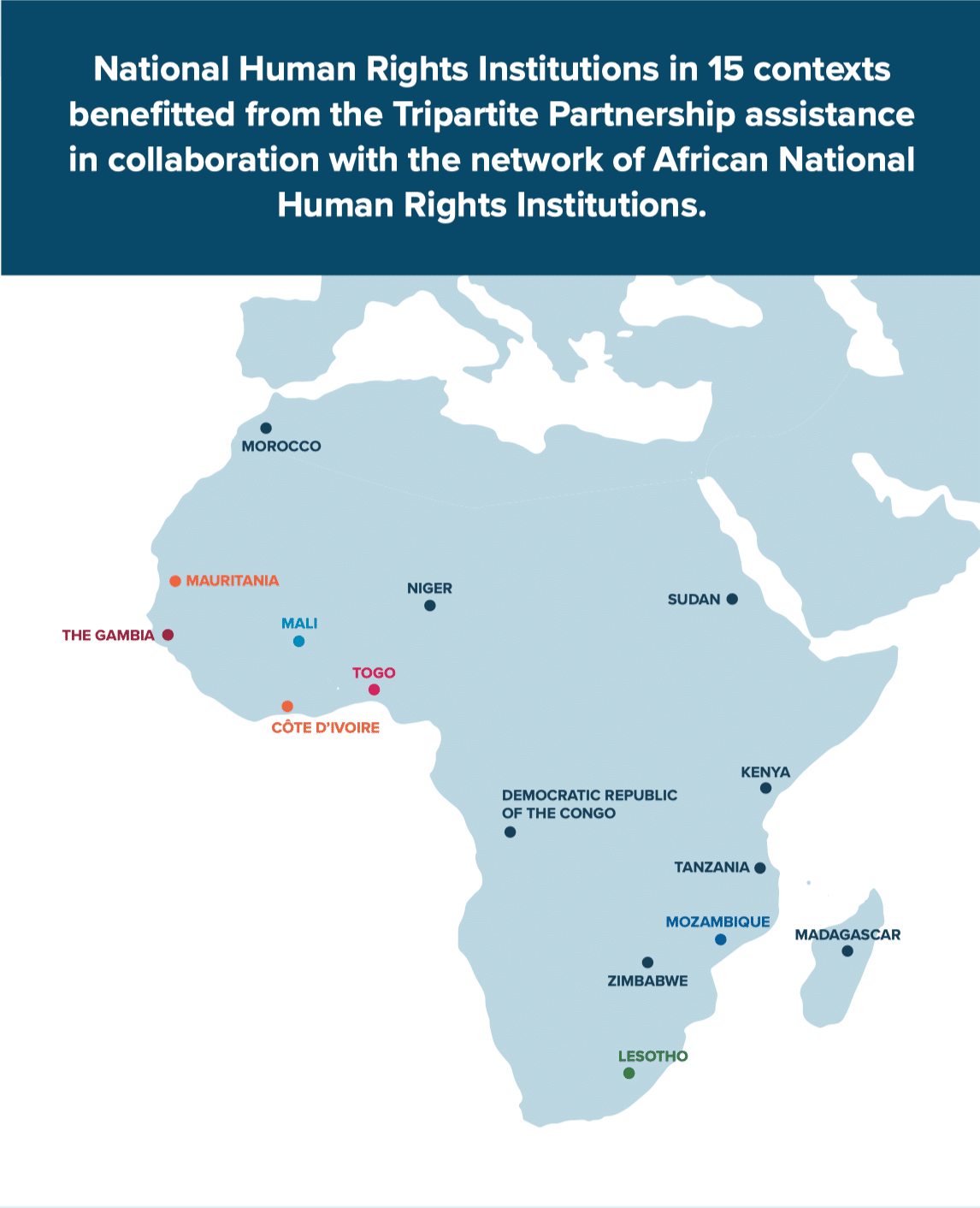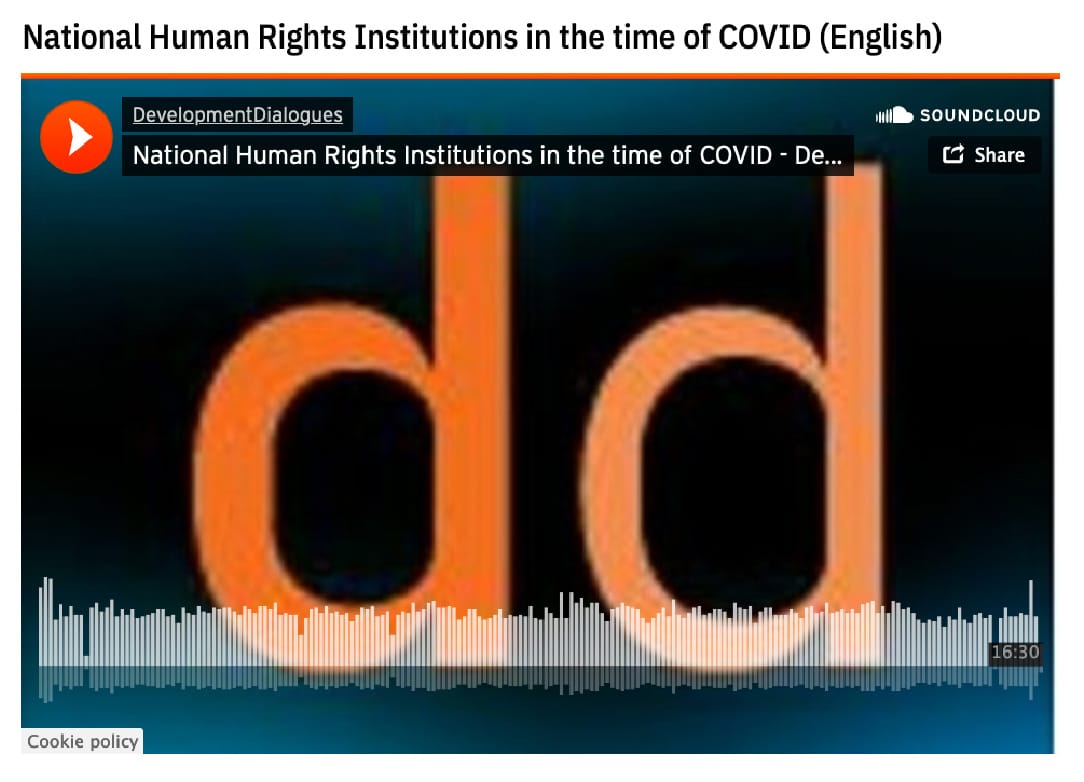Focus
The COVID-19 pandemic has had severe socio-economic and human rights implications. The virus and the measures taken to combat its worst effects have impacted everyone in society. However, greater impact has been felt by groups who are left behind or marginalized. UNDP is committed to supporting contexts to ensure that responses to the pandemic are shaped by a respect for human rights. This will help beat the pandemic and drive forward progress on the achievement of the Sustainable Development Goals – ultimately helping the world to emerge from this crisis with more sustainable and more equal societies.
UNDP has put human rights at the center of its COVID-19 response, working to support a rights-based response to the socio-economic impacts of COVID-19 at country level through co-leading the UN system’s response. UNDP continues to strengthen human rights systems at national level including through its support to National Human Rights Institutions (NHRIs) as cornerstones of national protection systems and key actors in the COVID-19 response.
Tripartite partnership to support National Human Rights Institutions (TPP)
Human rights are universal, indivisible and inherent to every human being. To protect and promote these rights, National Human Rights Institutions (NHRIs) work with governments, civil society and global partners to address local challenges and foster just and inclusive societies by upholding human rights principles and standards. As national entities with a broad mandate for the promotion and protection of human rights, NHRIs are a key element of the national protection system. They can act as an important ‘bridge’ within a society – linking government, parliament, other state entities, civil society organizations and populations.
The TPP is a unique platform to support NHRIs which aims, through the delivery of catalytic funding, substantive assistance and partnership support, to invest in strategic initiatives to build the capacity of NHRIs to increase fulfilment of human rights for all people.
As a collaborative platform between UNDP, the UN Office of the High Commissioner for Human Rights (OHCHR) and the Global Alliance for National Human Rights Institutions (GANHRI), the TPP increases efficiency and effectiveness of international support for NHRIs and leverages complementary mandates to provide high-quality and timely assistance to NHRIs that is jointly planned, delivered and evaluated through a rights-based approach to ensure maximum impact.
In 2020, NHRIs in 15 contexts benefitted from TPP assistance. To reduce overcrowding in places of detention during the COVID-19 pandemic, the NHRI in Togo improved its effectiveness through the development of its first strategic plan and costed results framework, informed by a thorough review of past practices and stakeholder consultations. The Ministry of Law and Justice and stakeholders in Lesotho took key steps toward the promotion and operationalization of the NHRI, including by increasing awareness of its prospective role and mandate and aligning its legislation with the Paris Principles. The NHRI in Mozambique undertook an in-depth capacity assessment, based on the Global Principles for the Capacity Assessments of NHRIs, to identify the most vital capacity needs of the institution and strategies to address them.
The TPP in collaboration with the Network of African National Human Rights Institutions (NANHRI) also conducted a rapid regional needs assessment of NHRIs in the context of COVID-19, and supported the development of six new tools and resources to enable implementation of the Marrakech Declaration with direct assistance to NHRIs in Cote d’Ivoire, Democratic Republic of Congo, Kenya, Liberia, Madagascar, Morocco, Niger, Tanzania and Zimbabwe.


Listen to the podcast to find out more about the work of National Human Rights Institutions in The Gambia and Armenia.
Human rights in COVID-19 response
COVID-19 highlighted inequalities and exacerbated vulnerabilities amongst the most marginalized. UNDP has taken a human rights-based approach to COVID-19 response that puts people and their rights at the centre of the recovery, based on the principles of participation and inclusion; accountability and the rule of law; as well as non-discrimination and equality. Responses to the pandemic that respect human rights will result in better outcomes in beating COVID-19.
UNDP, working with the UN Human Rights Office and the UN Development Coordination Office, provided a Checklist for a Human Rights-Based Approach to Socio-Economic Country Responses to COVID-19 to ensure voice, rights and agency of people at the center of UN efforts. Widely rolled out to UN Country Teams, the Checklist provides guidance to help the UN in examining whether socio-economic responses and recovery plans apply a human rights-based approach, ensuring that no one will be left behind.
The UN system has also recognized the critical need to provide capacity and support to NHRIs to monitor and engage governments in rights-based responses to COVID-19. UNDP, the Global Alliance of National Human Rights Institutions (GANHRI) and OHCHR commissioned a study on the role and activities of NHRIs in addressing the human rights dimensions of COVID-19 to provide an overview of good practices, experiences and lessons learned. Reviewing the practices of over 75% of NHRIs across the globe the study finds that:
- NHRIs have put people first, focusing on situations where the most vulnerable individuals and those most left behind in societies have been affected.
- NHRIs have been proactive and preventive, working to ensure that the pandemic does not exacerbate social conflict, xenophobia or discrimination, and that emergency measures put in place remain proportional and necessary.
- NHRIs have monitored places of detention, received, and acted on complaints, supported outreach, advocacy and communications to populations outlining their rights, their means of redress and response.
Yet, NHRIs have also been impacted by the pandemic. Their operations, methods of working and functionality have been put under stress and is some cases they have faced reprisals as a result of carrying out their mandates.
Despite this, many NHRIs have found innovative ways to continue delivering on their mandates: to promote and protect human rights showing remarkable resilience and adaptability by developing solutions that have overcome challenges in their ways of working.
UNDP continues to support NHRIs that are playing a pivotal part in providing rights-based responses to the climate crisis and the COVID-19 pandemic – from Bangladesh to Sierra Leone and beyond. In response to pressing needs for digital operations brought on by the COVID-19 pandemic, the NHRI in The Gambia established an Automated Case Management System to process complaints through a user-friendly and secure online platform. To reduce overcrowding in places of detention during the COVID-19 pandemic, the NHRI in Mali increased their monitoring visits contributing to the release of 1,300 people in June 2020.